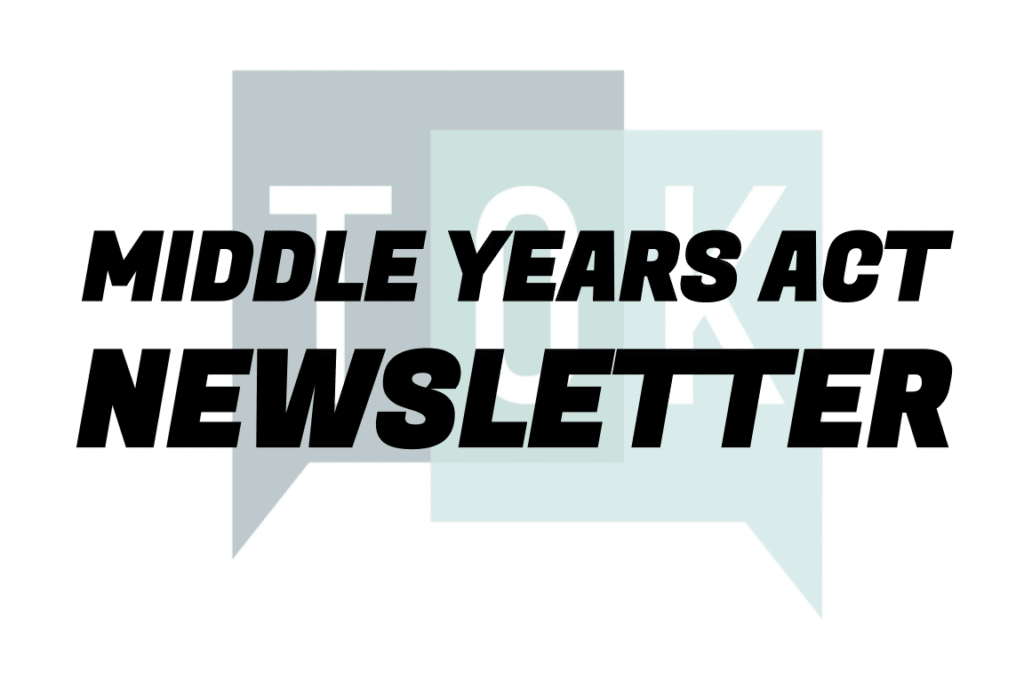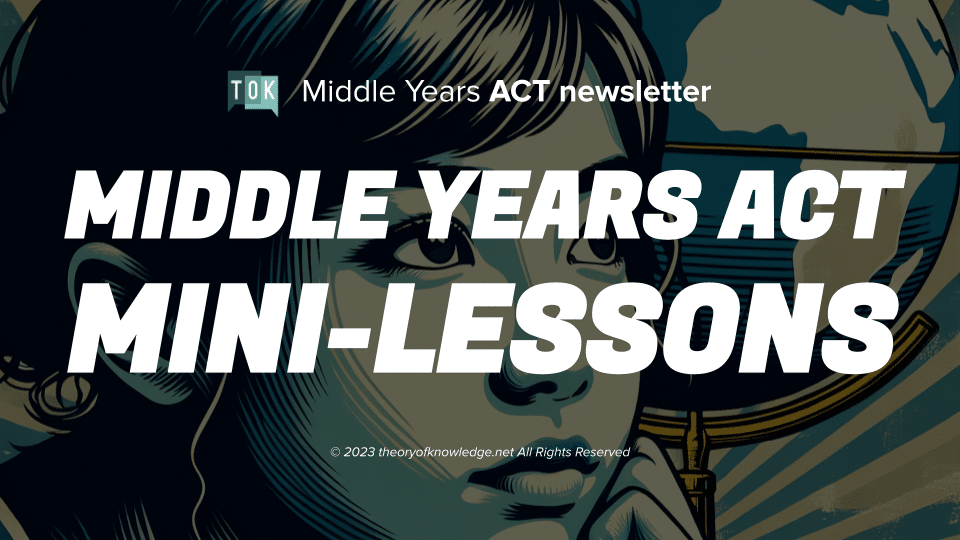
Our Middle Years Newsletter is designed for students aged 12 – 15, and helps them to go beyond the headlines, and understand the latest issues and events.
Alongside our Primary Years and TOK Newsletters, it enables schools to create a continuum of authentic critical thinking that will take students on a life-changing epistemological journey, and help them to become nuanced and courageous thinkers.
Access the middle years ACT newsletter

The Middle Years Newsletter is available to Faculty members of the site. Either purchase a new membership here, or, if you have a membership with fewer privileges, upgrade via this link. You will then receive the newsletter every month, as well as having access to all our other resources for TOK.
Click on the image to access a recent issue of the newsletter, to see how it supports critical thinking for middle years students within all subject areas.
The 8 comparative concepts
The 8 comparative concepts are ideas of particular usefulness to us as authentic critical thinkers. As much as possible, we try to build our newsletter stories and mini-lessons around them. You can then use them to ask questions about knowledge, such as the ones you see below.

In which subject area are we able to make the most certain claims about knowledge and understanding? Why does this variance exist? Does language allow us to be more certain about knowledge? Can certainty bring disadvantages in terms of our understanding of the world?

How does the nature of the subject areas differ in different cultures? Do mathematics and science transcend cultural differences? Do the arts deal with culturally universal concepts? Does the way we understand the world depend on the language we speak?

Which subject is most and least affected by different perspectives? How do our religious and political perspectives shape our worldview? Do our perspectives determine our language use? What forms our perspectives, and should we seek to escape them?

How does power affect the way knowledge is produced within the subject areas? In what ways can language be used to consolidate power as ideas are communicated? How does political and religious power influence the way we understand the world?

Turn all your teachers into critical thinking teachers!
Our workshops demonstrate to all teachers – whatever their level, programme, or specialisation – how they can develop authentic critical thinking.
They’re engaging, jargon-free, and hands-on, and provide practical takeaways that can be applied in the classroom to help students become nuanced knowers about the world. Find out more here, and read our workshop brochure here.



